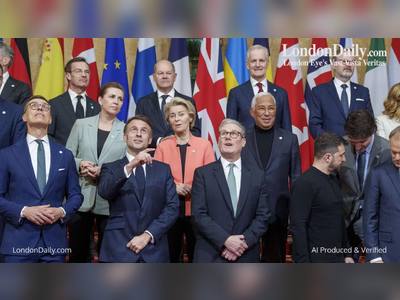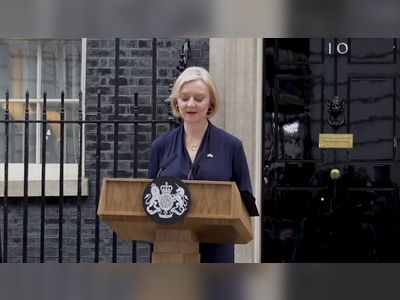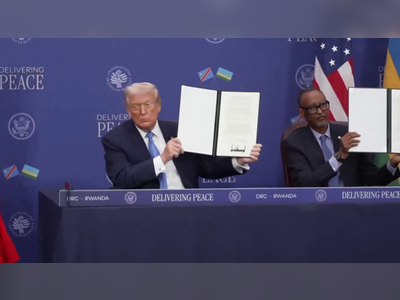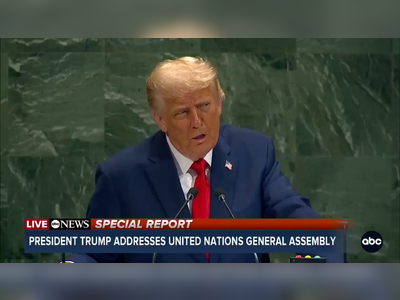
UK MPs Launch Probe into Chinese State Influence on British Universities
Foreign Affairs Select Committee expands its China review to examine Beijing’s interference in UK higher education institutions
The United Kingdom’s Foreign Affairs Select Committee is preparing to examine the influence of the Chinese state within British universities as part of its larger review of UK-China relations.
The inquiry, which expands on the government’s internal “China Audit”, follows revelations that Sheffield Hallam University halted a research project into forced labour in China after Chinese state pressure.
In October the university reversed its decision and apologised to the researcher concerned — Laura Murphy — but the incident has raised deep unease about foreign interference in academic freedom, particularly where commercial ties to China are significant.
Northern England’s university once warned internally that Murphy’s work and its business interests in China were “untenable bed-fellows”.
University and College Union branches at Sheffield Hallam and nationally have called for a full public inquiry into the role of external commercial and political pressure on academic institutions.
The committee chair, Emily Thornberry, stated that “from what we have heard so far, Chinese government interference in our universities is a threat.
We need to examine the extent of it and universities should have a co-ordinated response to it”.
The review will consider issues including the dependence of UK universities on tuition fees from Chinese students — 400,000 overseas students contributed billions in revenue, with Chinese students alone numbering nearly 150,000 in the 2023-24 academic year.
The committee will also explore whether institutional decisions are swayed by the need to safeguard access to the Chinese market or by partnerships that may compromise independent scholarship.
Beijing has responded by accusing the researcher and her funders of conducting a “political campaign of defaming China under the disguise of academic freedom”.
The Chinese embassy reiterated that China opposes institutions or individuals that “slander and smear China by fabricating falsehoods and spreading lies”.
The parliamentary examination enters a broader landscape of concern over foreign influence in higher education.
Last year the Intelligence and Security Committee warned that universities were “an easy option” for foreign states seeking economic or political advantage.
Institutions operating joint programmes or campuses offshore are now under renewed scrutiny.
Universities are facing increasing pressure to bolster transparency, revise partnership agreements, strengthen governance of foreign funding and ensure academic independence.
The forthcoming inquiry will publish evidence and may make recommendations for regulatory reform and greater oversight of overseas engagements.
The first hearing is expected in early 2026 and will set the tone for how the UK balances global academic collaboration with safeguarding national interests.
The inquiry, which expands on the government’s internal “China Audit”, follows revelations that Sheffield Hallam University halted a research project into forced labour in China after Chinese state pressure.
In October the university reversed its decision and apologised to the researcher concerned — Laura Murphy — but the incident has raised deep unease about foreign interference in academic freedom, particularly where commercial ties to China are significant.
Northern England’s university once warned internally that Murphy’s work and its business interests in China were “untenable bed-fellows”.
University and College Union branches at Sheffield Hallam and nationally have called for a full public inquiry into the role of external commercial and political pressure on academic institutions.
The committee chair, Emily Thornberry, stated that “from what we have heard so far, Chinese government interference in our universities is a threat.
We need to examine the extent of it and universities should have a co-ordinated response to it”.
The review will consider issues including the dependence of UK universities on tuition fees from Chinese students — 400,000 overseas students contributed billions in revenue, with Chinese students alone numbering nearly 150,000 in the 2023-24 academic year.
The committee will also explore whether institutional decisions are swayed by the need to safeguard access to the Chinese market or by partnerships that may compromise independent scholarship.
Beijing has responded by accusing the researcher and her funders of conducting a “political campaign of defaming China under the disguise of academic freedom”.
The Chinese embassy reiterated that China opposes institutions or individuals that “slander and smear China by fabricating falsehoods and spreading lies”.
The parliamentary examination enters a broader landscape of concern over foreign influence in higher education.
Last year the Intelligence and Security Committee warned that universities were “an easy option” for foreign states seeking economic or political advantage.
Institutions operating joint programmes or campuses offshore are now under renewed scrutiny.
Universities are facing increasing pressure to bolster transparency, revise partnership agreements, strengthen governance of foreign funding and ensure academic independence.
The forthcoming inquiry will publish evidence and may make recommendations for regulatory reform and greater oversight of overseas engagements.
The first hearing is expected in early 2026 and will set the tone for how the UK balances global academic collaboration with safeguarding national interests.









